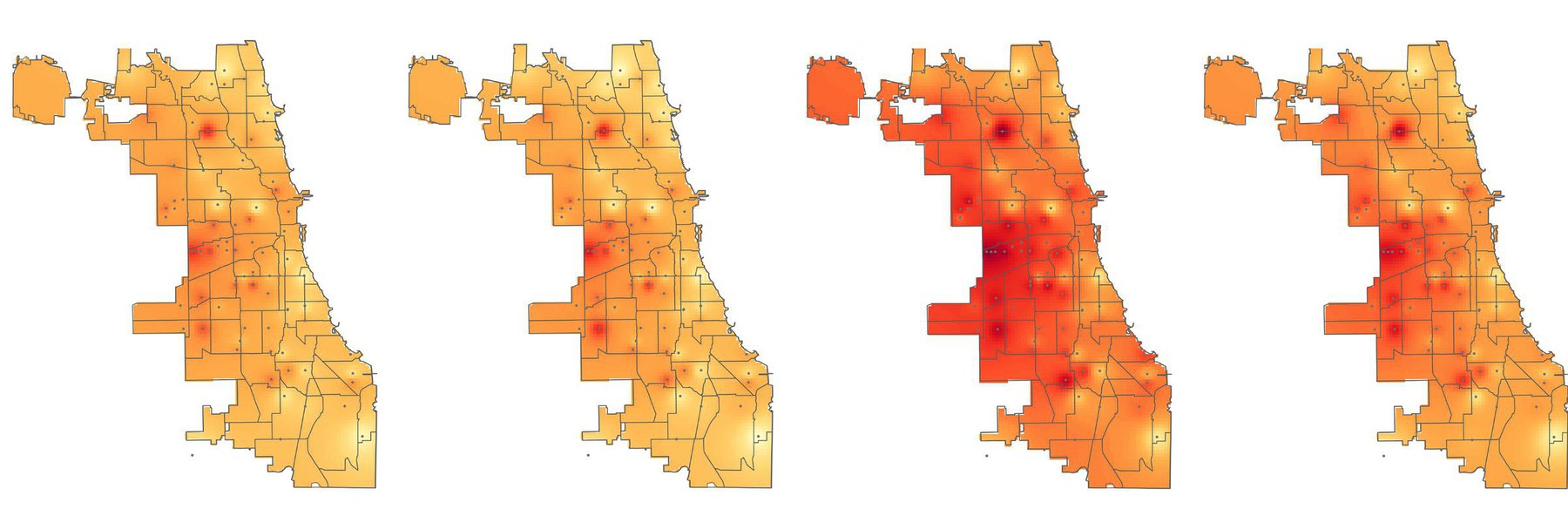For this week’s FOIA round-up, an adorable lesson on why to always be FOIA-ing, shocking evidence that pizza and infrastructure are popular, and Chicago’s mayor finds out the hard way that doing business in secret can cost you.
See a great use of public records we missed? Send over your favorite FOIA stories via email, on Twitter, or on Facebook, and maybe we’ll include them in the next round-up. And if you’d like even more inspiration, read past round-ups.
Let loose the dogs of intelligence
After noticing what appeared to be trading cards for K-9 units at the National Geospatial-Intelligence Agency at a veterinarian’s office in Virginia, reporter Joshua Eaton filed a FOIA for the full set. As he reported in Think Progress, not only did the NGA fulfill the request, but they sent over physical copies.
Each card has the dog’s picture and name flanked by crests for NGA’s police force, the Office of Protective Services. The back has the dog’s name, date of birth, breed, weight, the date it started service, and the name of its handler, along with general information on the Office of Protective Services and what to do in an emergency.
The dog’s handlers, who are officers in the Protective Service’s Special Operations Branch, give the cards to agency employees and hand them out to members of the public at events as part of the force’s community policing strategy, according to Chief John Manson.
Eaton filed the request through MuckRock, and scans are embedded below:
Potholes, pizza, and PR
Emails obtained by Motherboard through public records requests show that three municipalities received $5,000 grants through advertising agency Crispin Porter + Bogusky in exchange for participating in Domino’s “Paving for Pizza” ad campaign.
In January, CP+B approached the cities of Athens, Georgia; Bartonville, Texas; and Milford, Delaware, offering them each grants of $5,000 to help them repair potholes in their town. In exchange, cities would carry out the repairs, take photos or videos of the repaired potholes, and stencil on a Domino’s logo along with the tagline “Oh yes we did.”
Milford patched 40 potholes with its $5,000 - and held a staff pizza party with the $200 in gift cards it received from Domino’s. Athens fixed 150 potholes and Bartonville did eight.
Yet, each town’s leaders and support staff spent considerable time and resources—paid for by taxpayers—replying to emails and having phone meetings, filling out contracts, and taking pictures of the patched potholes. Each of the towns also fielded many media requests, which also ate up their time. Norenberg spent hours coordinating and writing a Washington Post op-ed. According to the FOIA documents, the only money towns received for all these efforts was the $5,000 grant destined for road repairs.
Read the full article here.
Fighting transparency gets costly in Chicago
The Chicago Tribune reported this week that Mayor Rahm Emmanual has spent $120,000 in campaign funds on legal fees fighting public records lawsuits, over a third of Emmanual’s total legal expenditures since 2014.
The Chicago Tribune sued Emanuel and his office in September 2015, alleging he had failed to turn over the emails and text messages pertaining to government business. The lawsuit also sought to have the mayor declared in violation of the Illinois Local Records Act for failing to preserve emails and text messages he sent or received while doing city business.
In May, Cook County Circuit Judge Kathleen Pantle granted the Tribune a victory, ruling Emanuel and his office violated state law by withholding for nearly a year and a half emails sent and received from his personal accounts that related to city business, including emails about the scandal-plagued red light camera program. The judge also opened the door to having Emanuel testify about whether he and his office failed to preserve texts and emails on his personal phones and accounts in violation of the local records law.
Read the full article here.
Read a great FOIA-based news story we should highlight? Let us know and maybe we can include it in our next roundup! Send it over via email, on Twitter, or on Facebook.
Image via ODNI Flickr




